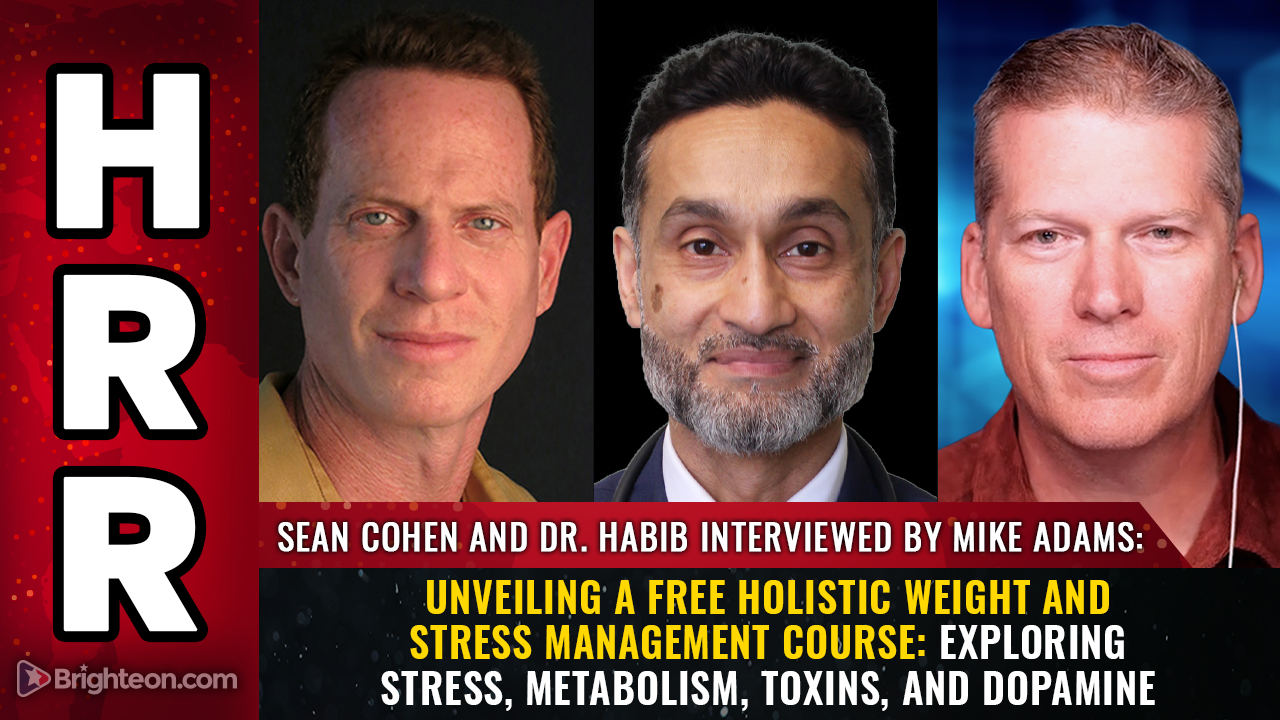DISINFORMATION about “good sleep habits” could be wrecking your restful sleep, so find out what they are and remedy the situation now
09/01/2025 / By S.D. Wells

Big Pharma and the Disinformation Industrial Complex love to dole out bad info about everything having to do with your health, and restful sleep is no exception. Now it seems they’re posting all kinds of bad advice for getting a good night’s sleep, and if you don’t know how to decipher the pharma shill coding, you’re in for a rude surprise.
Getting a good night’s sleep is crucial for physical and mental health, with benefits ranging from stronger immunity to improved brain function. Unsurprisingly, many people turn to sleep hygiene tips — like keeping a regular bedtime, avoiding screens, and cutting out caffeine — in hopes of sleeping better. While these strategies can work for healthy sleepers, for people with insomnia they may backfire. Experts warn that trying too hard to perfect sleep can reinforce the very problem it is meant to solve.
- Well-meaning habits can backfire – Strategies like going to bed early, banning screens, or cutting caffeine completely may worsen insomnia by fueling anxiety, weakening the bed–sleep link, or creating unnecessary restrictions.
- Sleep is flexible, not rigid – Expecting identical sleep every night ignores natural variation caused by stress, health, parenting, and life demands, which can lead to frustration and self-blame.
- Over-optimization harms sleep – Obsessing over trackers, products, or “perfect” routines can trigger orthosomnia — sleep anxiety caused by trying too hard to control a process that’s largely automatic.
- Effective treatment exists – Insomnia often requires more than sleep hygiene; Cognitive Behavioral Therapy for Insomnia (CBT-I) and orexin-blocking medications are proven, evidence-based options.
5 “Good” sleep habits that could actually make insomnia worse
- Spending more time in bed
People with insomnia often go to bed earlier or stay in bed later, hoping to “catch up” on missed sleep. However, spending long stretches awake in bed weakens the brain’s association between bed and sleep, replacing it with frustration and anxiety. Sleep therapists often recommend the opposite: restrict time in bed, go to bed slightly later, and keep a consistent wake-up time to strengthen the natural sleep drive. - Strictly avoiding screens
Blue light from phones and tablets does suppress melatonin, but banning screens altogether can make insomnia worse. For many, lying in the dark with racing thoughts heightens anxiety. Gentle, calming screen use — such as listening to a quiet podcast or watching something soothing in night mode — can provide distraction and relaxation that aid sleep, rather than hinder it. - Cutting out caffeine completely
Caffeine sensitivity varies greatly by individual. While avoiding it in the afternoon or evening is sensible, a morning coffee may actually support alertness and help regulate the body’s sleep-wake rhythm. Total elimination is unnecessary for many people and may even make mornings harder, adding stress that disrupts sleep further. - Obsessing over sleep optimization
The booming “sleep economy,” worth over $500 billion, markets gadgets, apps, and supplements that promise perfect rest. But tracking sleep too closely can fuel orthosomnia — insomnia caused by anxiety about sleep. Sleep, like digestion, is largely automatic. Trying to control it rigidly often backfires. Sometimes the healthiest approach is to relax expectations and let sleep happen naturally. - Expecting identical sleep every night
Sleep is flexible, not fixed. Stress, parenting demands, illness, and aging all shape nightly patterns. Expecting to get the same number of hours every night is unrealistic and sets people up for frustration. Human sleep has always adapted to life circumstances, and variability is normal.
Beyond sleep hygiene
The biggest misconception in sleep culture is that poor sleepers are simply failing at healthy habits. This places blame on people with insomnia while ignoring the complexity of the disorder. Evidence-based treatments exist beyond sleep hygiene. Cognitive Behavioral Therapy for Insomnia (CBT-I) is considered the gold-standard intervention, helping people break negative sleep patterns and reduce anxiety around bedtime.
Sleep hygiene tips may work for healthy sleepers, but for those with insomnia, some strategies can unintentionally prolong the problem. Instead of rigid rules, a flexible, individualized approach is needed. Combining realistic expectations with proven therapies like CBT-I or medical treatment like orexin-blocking medications gives people with insomnia the best chance at reclaiming restful, restorative sleep.
Tune your internet dial to NaturalMedicine.news for more tips on how to sleep well using natural remedies, avoiding screen time at night, and alkalizing the body for ultimate restful sleep.
Sources for this article include:
Submit a correction >>
Tagged Under:
bad sleep, deception, Fact Check, health science, insomnia, lies, men's health, Mind, mind body science, misinformation, natural health, REM Sleep, restful sleep, sleep, sleep disorders, sleep strategies, tips, truth, women's health
This article may contain statements that reflect the opinion of the author




















